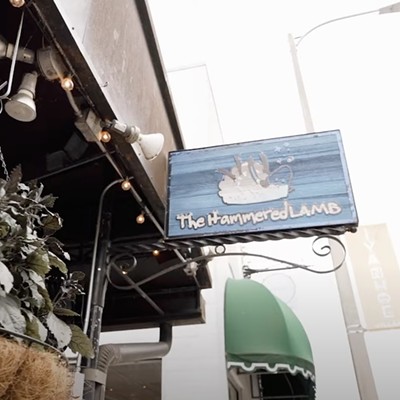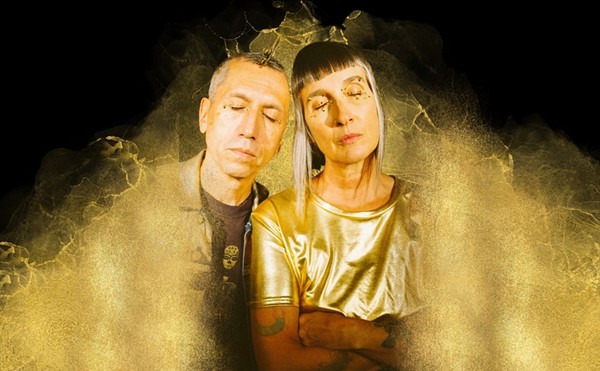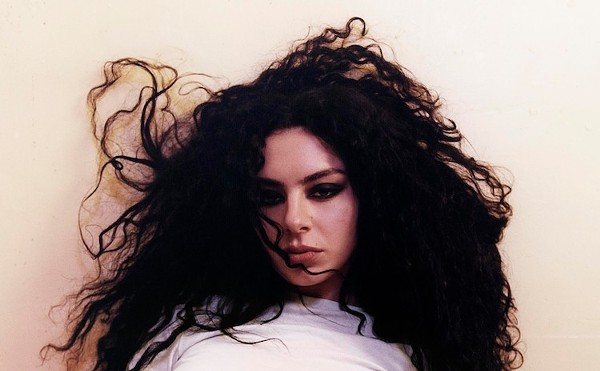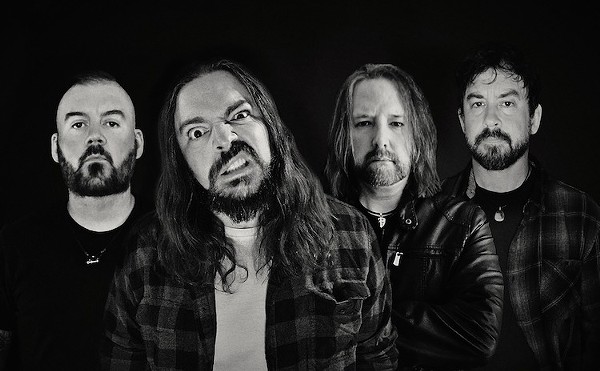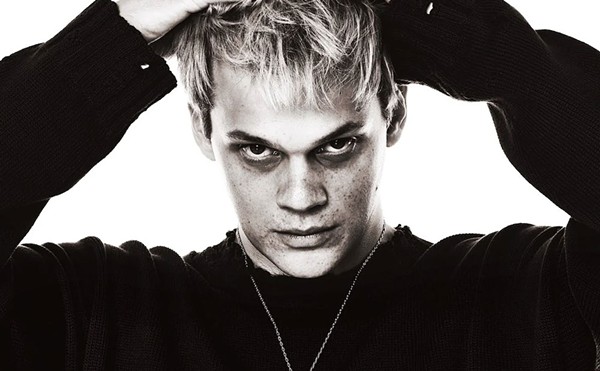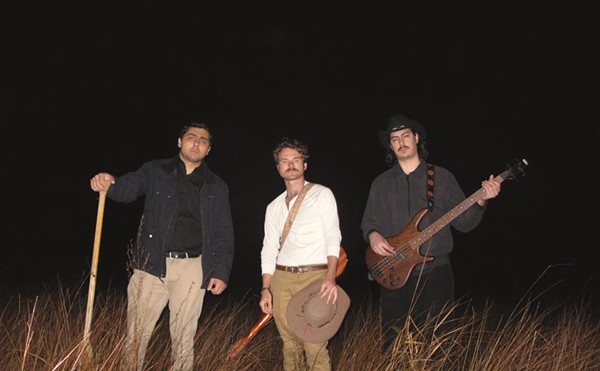Will Hoge had a life plan roughly mapped. "I left high school with the intention of becoming a history teacher and coaching high school basketball," he recalls. But he got a guitar before he started college, and he began writing some songs, and then he began playing out a little. He put together a band in Nashville and booked his first serious gigs there in 1999.
Now it's 2001, and Will Hoge has been on the road with his group for more than half of the past two years. He has two self-released CDs to his credit: last year's document "Live at The Exit/In," and this year's lucky "Carousel," picked up by Atlantic Records. "Carousel" translates Hoge's blood-pumping performances into a studio setting. Hoge is as involved with athletics as he always planned to be, but he's working out onstage rather than on a court. And he's teaching history, only it's the history of the passionate rock troubadours whose work he now emulates.
"Carousel" finds Hoge dancing in the same shoes as Van Morrison, Bruce Springsteen and every other sweaty pilgrim who looked for the meaning of life between the scratches of a flea-market 45. From the rousing opener, "She Don't Care," the album hops and roars, blasting forth with purposeful energy and the joy of music-making. Kirk Yoquelet's propulsive percussion -- unafraid of the backbeat -- powers 10 cuts that lean toward the expression of pouty romantic dissatisfaction but in such bright, colorful arrangements that the bitterness ends up blending with other, tastier flavors.
Hoge has a way with a bridge, using the time-tested pop-song construction to shore up his compositions and to draw the listeners' attention up to the sky. He tosses out marvelous throwaway lines like, "She had a tattoo of a butterfly/ because that's the way it goes" in soulful, swaying tunes like "Heartbreak Avenue."
All of this from a man whose interest in self-expression came late. "I was never a poetry guy or a big reading guy," Hoge admits. "The writing process is something that I've had to catch up on." On tour, he says, "I don't spend time reading anything but a map."
Hoge is having this conversation on the phone from Atlanta, in the middle of an extended road trip. He and the band have been playing clubs, doing radio shows, performing at big outdoor events, and sometimes doing more than one of these gigs in a single day. At a few outdoor festivals, Hoge's outfit has gone on before such major modern-rock acts as Vertical Horizon and Sister Hazel, bands that play the sort of punchless midtempo drip-pop that Hoge's own act is designed to incinerate.
The heavy workload and intense, voice-shredding commitment to giving the crowd high-energy entertainment has cost Hoge one of his premier collaborators, guitarist Dan Baird. "Even without this album, we had maintained a fairly ridiculous touring schedule," Hoge ex-plains. "Right before we recorded this record, Dan decided that he didn't want to tour as much as we would be." So, though Baird lent his chops to "Carousel," he bowed out of the band by amicable mutual agreement.
Thanks partly to Baird and partly to producer Scott Parker, "Carousel" has a polished, fully realized sound that belies its self-financed origins. Several songs are repeated from "Live at The Exit/In," because, Hoge says, "We felt that maybe we hadn't gotten the mileage out of all the songs that we should." And the loud-but-distinct vibe that Parker achieves proves the benefits of the rerecording. "We got really lucky in that Scott Parker, he told us we have to approach this as if we're making a major-label record."
Sounds like Parker might have seen how the cards would unfold, as the album was indeed rereleased in August by Atlantic Records, the big major-label break every band is waiting for.
Still, Hoge was just about out of money by the time "Carousel" was finished. The situation may have been even more critical had Hoge not been helped out by a publishing deal he signed with Warner-Chappell midway through the recording process -- which took about 10 days of studio time spread over several months.
Despite storming the Nashville scene as a neophyte, Hoge did have a strong connection to music before he started dabbling with the guitar. "My father has great musical taste, and music was maybe the first thing I fell in love with. I remember when I was like 13, my father snuck me into a bar to see Bo Diddley. Afterward, he said it sounded terrible, but I thought it was great."
Hoge can't say if it was that night in particular that taught him the value of showmanship, but he acknowledges that he does pay attention to how his favorite acts come across onstage.
"I saw Bob Dylan on one of those rare nights when he looked like he was having a great time," he says. "He danced a little and got silly at times." He chalks that up as one of the best concerts he ever saw.
Hoge goes into a reverie, talking about that magical place that a band can get to, where it is directly in touch with the crowd's collective emotions. For a moment, his scratchy voice begins to smooth out and take on the thick-as-honey tones of his singing voice.
Has his band ever hit that stride that he describes so fervidly? He pauses. "Yeah ... It almost sounds too braggart to say. But we're not making enough money on the road to do it for any other reason than for the thrill of trying to be a great band."
Solid rock: Will Hoge's major-label debut finds him dancing in the same shoes as Van Morrison and Bruce Springsteen


